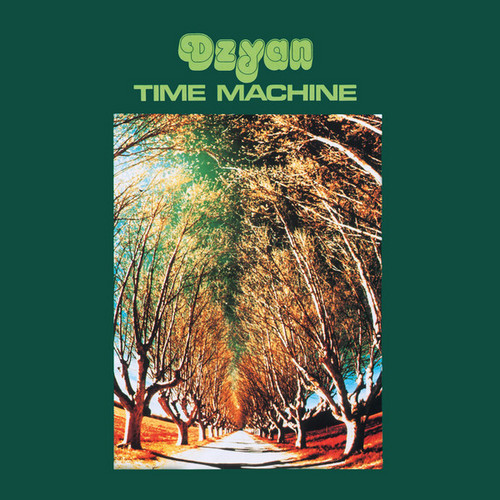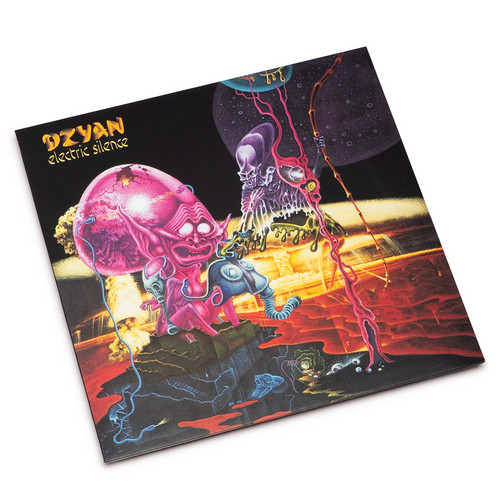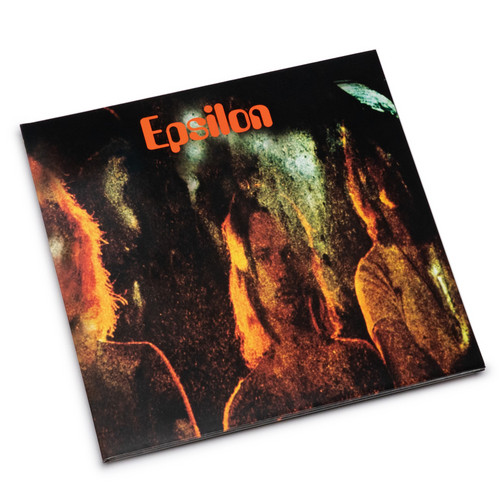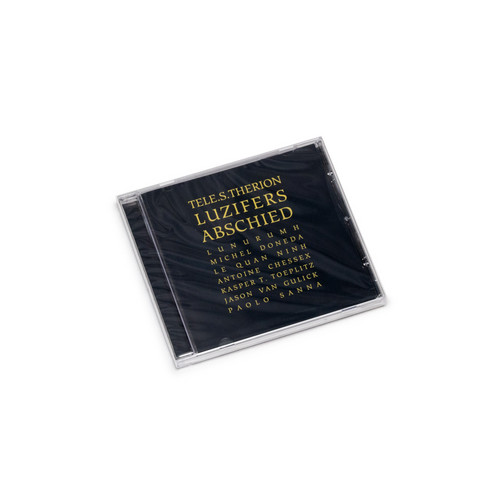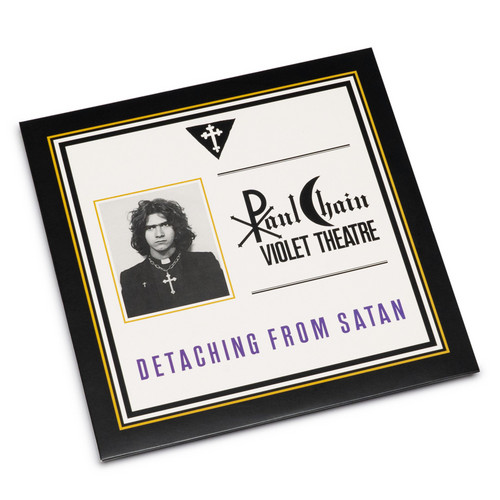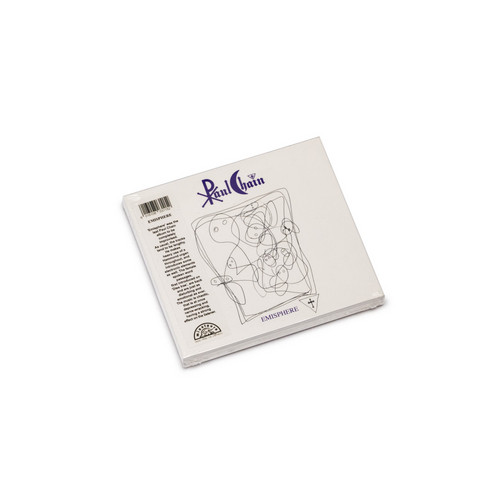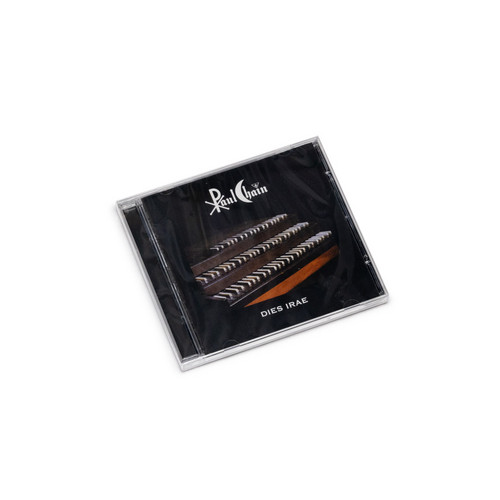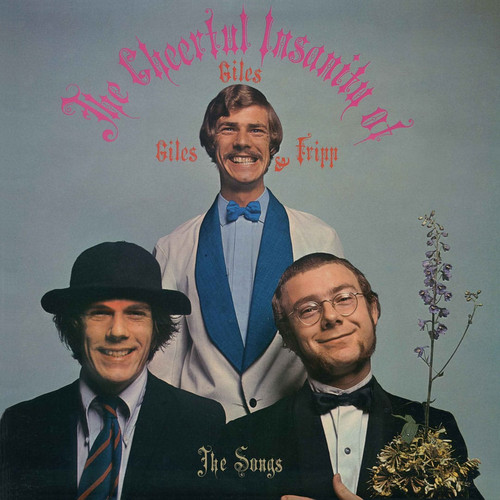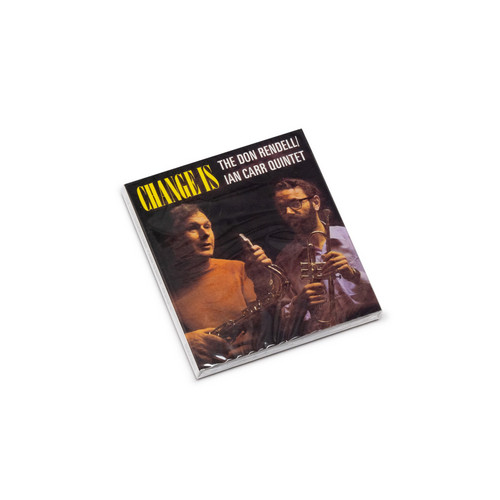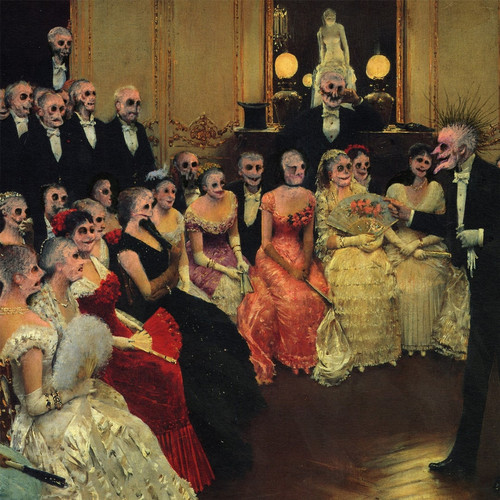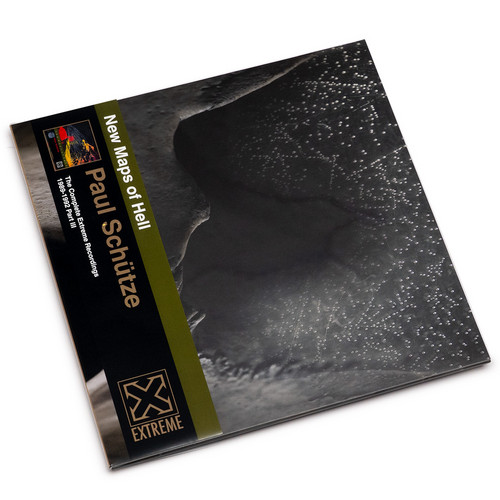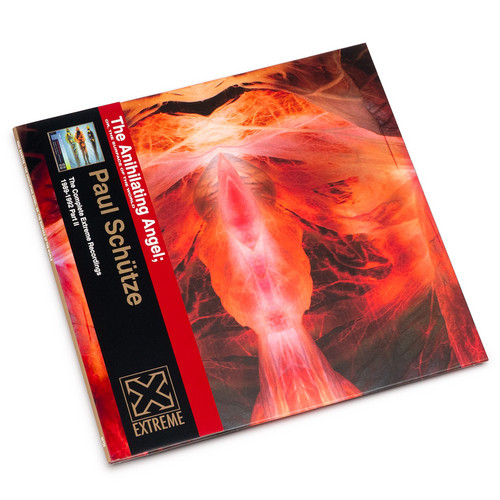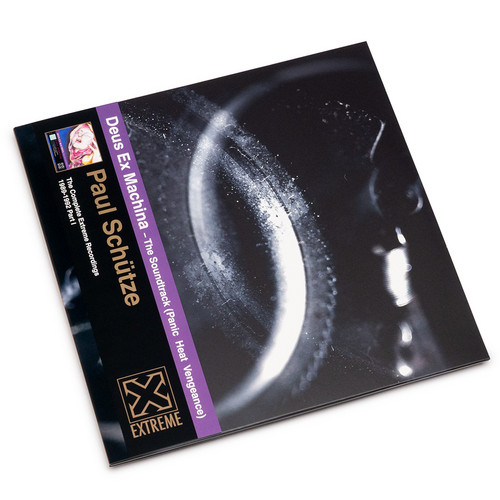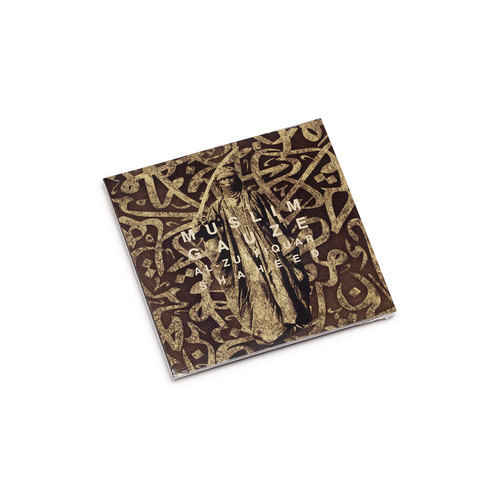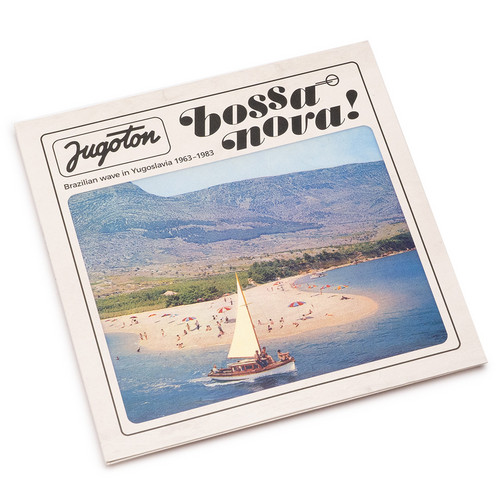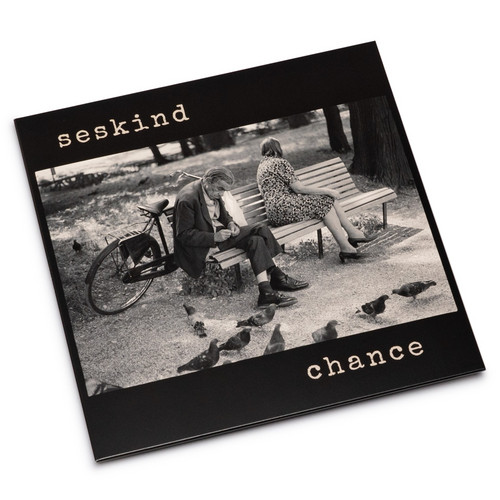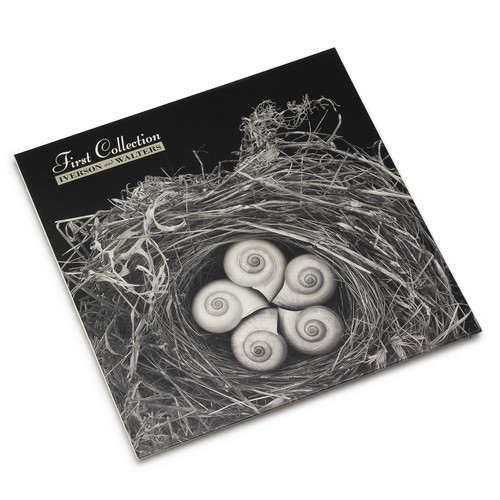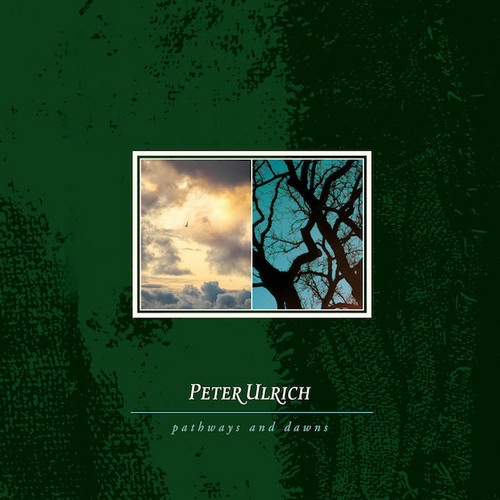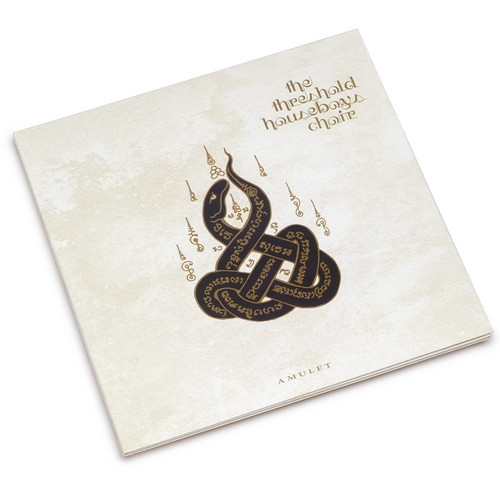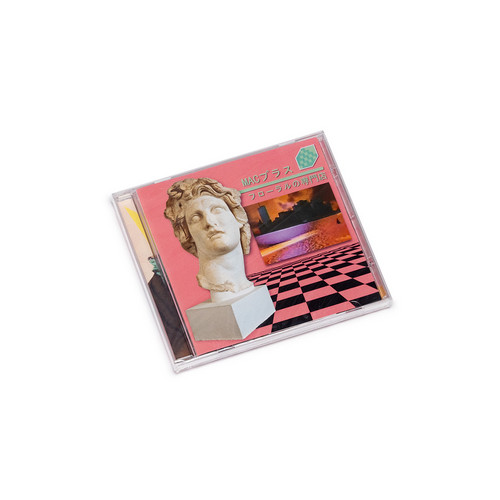Back in stock
Time Machine
Originally released in 1973, Dzyan’s second album "Time Machine" marked a shift from vocal prog-rock to a unique blend of jazz, ethnic, and acid-rock influences. Showcasing virtuosic musicianship, it stands as a pioneering work in German rock, ahead of its time.
Electric Silence
Originally released in 1974, Dzyan’s third and final album is a Krautrock masterpiece, blending daring world beat, jazz-prog, and mysticism. Multi-instrumentalists experiment with exotic sounds and inventive instruments, creating a psychedelic, otherworldly work—an enduring highlight of German rock.
Epsilon
The self‑titled Epsilon introduces Epsilon as one of those early‑70s outfits that understood rock not as a fixed style but as a volatile intersection of impulses: hard rock muscle, blues phrasing, progressive ambition, and a lingering psychedelic afterglow. The album moves with the confidence of a band that has internalised late‑60s British rock grammar - heavy guitar, insistent Hammond, a rhythm section that can punch and pivot - yet refuses to collapse into pure riff worship. Instead, the grou…
Tele.s.therion - Luzifers Abschied
Acousmatic black metal. A concept album based on the namesake fourth scene of «Samstag aus Licht», from the opera «Licht: die sieben Tage der Woche», composed by Karlheinz Stockhausen.
Detaching From Satan Remastered
** 2026 Stock ** The spirit of Paul Chain's music is definitely identifiable to anyone who is immersed in the mysticism of Pentagram, Trouble, Sleep and others of the emerging scene of the early to mid 80s, but where usually a few little nuances make these acts distinct, PC has staked out territory all his own with an extremely exaggerated variant of the sub-genre that has lost none of its mystique in the passing decades. 2017 Remastered Edition. Paul Chain, Guitar and Vocals. Paul Dark, Bass. E…
Emisphere 2CD
'Emisphere' is the last album from Paul Chain to be completely improvised. As usual, the tracks tend to be long, many being near or above the 15 minute mark, with a large use of the Hammond Organ throughout, and introduces some electronic elements as well. Released in 1996 by Paul Chain playing all instruments with the occasional help of Sandra Silver on vocals.
Dies Irae
** Edition of 200 ** Comes in a regular plastic case with clear tray. Includes a 6-page fold-out booklet. Paul Chain’s 1994 experimental album. "There are sections of familiar guitarplay included as well as the standard hammond organ, but still all metal/rock fans should be warned that this is mostly an electronica/industrial release. The mood of the album varies between lamentation and insane anxiety. In particular, ‘Prescence Of The Soul’s Forest’ is utterly disturbed and the vocals of Sandra …
The Cheerful Insanity of...
The Cheerful Insanity of Giles, Giles and Fripp reveals King Crimson's gentle 1968 genesis - a landmark British psychedelia album featuring the Giles brothers and young Robert Fripp. This breezy, Beatles-esque collection showcases burning Frippian guitar work and the original "I Talk To The Wind." The 2025 Panegyric reissue removes spoken interludes for improved flow. Essential prehistory.
Change Is
The Don Rendell - Ian Carr quintet, created in 1963, was,a small Brit jazz group that took the country by storm and was well received in Europe and in limited circles in the United States. The band developed a unique sound that came out of hard bop and moved through many different phases, developing a unique musical language before they reached the mountain top of creative expresión.
Thunder Perfect Mind
Black vinyl, includes double sided poster. 3LPThe original release of Nurse with Wound's gargantuan "Thunder Perfect Mind" in 1992 coincided with that of Current 93's homonymous genre-defining album. Legend has it that the gnostic name initially appeared to Steven Stapleton in a dream as the title of Tibet's then still nameless upcoming album. Both records feature contributions from David Tibet, Colin Potter, Rose McDowall, John Balance of Coil, Alan Trench of Orchis and Joolie Wood amongst othe…
New Maps Of Hell
One of the very best ever Tribal Ambient Dub albums, originally released on the famous Australian Extreme label. Brilliantly new mastered, sounds way better than the original recordings. Includes bonus songs from other Extreme releases. For fans of early WARP, Muslimgauze, Future Sound Of London, The Orb, Rapoon and alike.
The Anihilating Angel (Or, The Surface Of The World) (LP)
Tom Fryer - guitarJudy Jacques - voiceSandro Donnadi - trumpetSam Mallet & Jeff Jaffers - spoken voicePaul Schütze - keyboards, percussion & programmingarranged and produced by Paul Schütze
Recorded at Absolute Studio & Soundfirm Melbourne, jan - june 1990.Engineered by Steve Burgess.
Special thanks to : Steve Burgess, all at Soundfirm, Philip Brophy, Robert Goodge, all the Tunisian extras who sang & played for us between scenes during the shooting of Isabelle Eberhard & finally to Sylvie Partio…
Deus Ex Machina
"Paul Schütze’s debut album from 1989 sets his stall out from the start; with a cyber update on Jon Hassell’s notion of ‘Fourth World Music”. Schütze’s music always sounds like it could be an alternative soundtrack to ‘Blade Runner’ (be aware fellow purists, I did state “alternative”), and this album is probably the perfect candidate if in some other dimension the Vangelis OST was no longer deemed satisfactory (such a dimension surely cannot exist). The listener feels like they’re walking throug…
Al-Zulfiquar Shaheed
People believe that the magic of Muslimgauze works best with looong tracks. Think the same? Then "Al-Zulfiquar Shaheed" is exactly for you! 75 minutes of mellow eastern-style hypnotism. Consisting of only five parts, the album shows Bryn's ability to create lengthy and detailed compositions filled with Arabic percussion, droning keyboards, vocal samples and ethereal atmospheres. A strong rhythmic, yet melodic album, that should be in the collection of every Muslimgauze fan. Definitely one of Bry…
Jugoton Bossa Nova! - Brazilian Wave In Yugoslavia 1963-1983
Rich musical history of Yugoslavia reveals a long-lasting love for the music of Latin America.
Chance
The home-recorded album everything pointed to - now on vinyl and CD for the first time. After several delays, we finally received the long-awaited production date from the pressing plant - and are happy to share this long-overdue announcement. Following the 2022 reissue of Scott Seskind’s 1985 debut, there was never a question - we wanted to go further.
Ebalunga!!! exists to restore forgotten gems, and Scott’s music has been warming our hearts for years. So, to our own joy - and in response to a…
First Collection
After almost two years of work, we're glad to invite you to a new journey through the fog of time and enjoy the upcoming reissue of the great Ambient/Folk record from 1984. A well-known to collectors but extremely rare record by Jon Iverson a multi-instrumentalist from Palo Alto and his college friend, mandolinist Tom Walters. They shared a love for singer/songwriter fare and gigged around campus playing covers of Neil Young, CSN, and Loggins/Messina in the late '70s. "First Collection" was reco…
Pathways And Dawns
We are very excited to bring you a new IFP release – the first vinyl edition of Peter Ulrich's debut solo album “Pathways And Dawns”. Widely known for his past work as drummer/percussionist with legendary Dead Can Dance and contributor to 4AD's This Mortal Coil, Ulrich emerges here as a writer of hauntingly beautiful melodies and deeply poetic lyrics. “Pathways And Dawns” is packed with driving rhythms and meditative ritual patterns of percussion. With some inspired guitar-work, arrangement, and…
Amulet
The music released as Amulet (or The Amulet Edition) is Peter "Sleazy" Christopherson's semi-secret testament. Originally available in exceedingly limited quantities at live shows and via direct mail-order in 2008 as a hand-assembled 4 miniCDR set housed in a circular Thai Amulet case and never properly distributed, the material finally receives the wider re-release on vinyl and CD it so richly deserves. Only the second and sadly already the final release in his post-Coil solo guise as The Thres…
Floral Shoppe
*2025 stock.* "[...] By no conventional logic should Floral Shoppe have made it beyond the deep-internet realms it emerged from. But like candy-colored mold, its power has rapidly spread while its then-teenage creator Ramona Xavier, the Portland artist now known as Vektroid, has remained an elusive figure, simultaneously a pioneer and an outlier. Her album remains one-of-a-kind in its depiction of anxiety and crisis rendered through waves of numbness that range from deeply unsettling to artifici…
